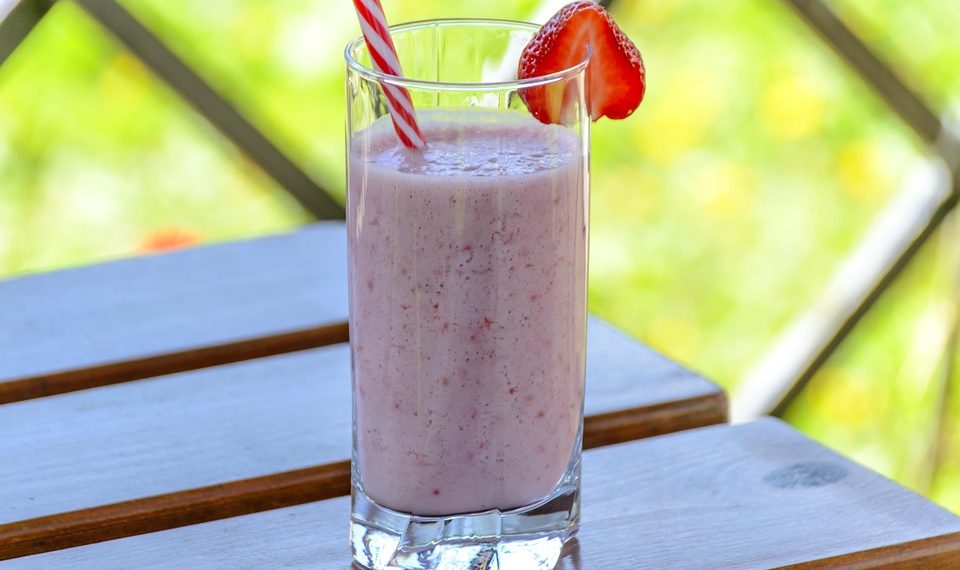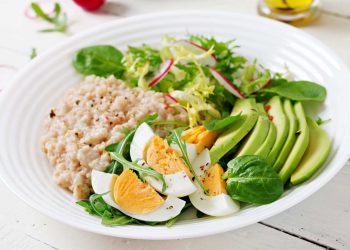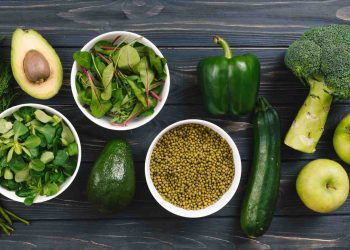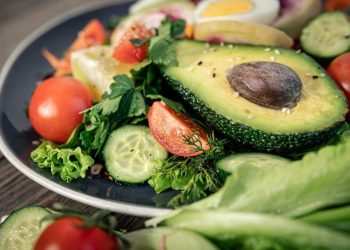Did you know that kefir, that tangy, probiotic-rich drink, could be your new best friend in the quest for healthy testosterone levels? If you’re like me, you might have heard a lot about the benefits of probiotics for gut health, but what if I told you that they can also play a role in hormone regulation? Research suggests that a balanced gut microbiome may positively influence testosterone production. So, why not combine taste and health with some delicious kefir recipes? Let’s dive in!
Contents
What is Kefir?
Before we get into the recipes, let’s break down what kefir actually is. Originating from the Caucasus region, kefir is a fermented milk drink made by adding kefir grains to milk. These grains are a symbiotic culture of bacteria and yeasts, which not only give kefir its unique tangy flavor but also pack it full of probiotics. These little powerhouses can improve digestion, enhance your immune system, and potentially boost testosterone levels.
The Science Behind Kefir and Testosterone
Now, you may be wondering, “How does this all connect?” A study published in the Journal of Clinical Endocrinology & Metabolism found that gut health can influence testosterone levels. The probiotics found in fermented foods like kefir may help in maintaining a balanced gut microbiome, which is crucial for optimal hormone production (Müller et al., 2018).
So, ready to whip up some delicious kefir recipes? Let’s get started!
1. Kefir Smoothie Bowl
Ingredients:
- 1 cup plain kefir
- 1 banana
- 1/2 cup frozen berries (blueberries, strawberries, or mixed)
- 1 tablespoon chia seeds
- 1 tablespoon honey (optional)
- Toppings: granola, nuts, seeds, fresh fruit
Instructions:
- In a blender, combine the kefir, banana, frozen berries, chia seeds, and honey.
- Blend until smooth and creamy.
- Pour into a bowl and top with your choice of granola, nuts, seeds, and fresh fruit.
Why It’s Great:
This smoothie bowl is not only delicious but also packed with antioxidants and healthy fats. The bananas add potassium, while chia seeds provide omega-3 fatty acids, both of which are beneficial for hormone health.
Pros:
- Quick and easy to make.
- Highly customizable with various toppings.
Cons:
- If you’re allergic to dairy, opt for a non-dairy kefir alternative.
2. Kefir Salad Dressing
Ingredients:
- 1/2 cup plain kefir
- 2 tablespoons olive oil
- 1 tablespoon apple cider vinegar
- 1 teaspoon Dijon mustard
- Salt and pepper to taste
- Fresh herbs (like dill or parsley), chopped
Instructions:
- In a bowl, whisk together the kefir, olive oil, apple cider vinegar, and Dijon mustard.
- Season with salt and pepper.
- Stir in fresh herbs.
Why It’s Great:
This dressing adds a zesty kick to salads while also being rich in probiotics. Olive oil is known for its heart-healthy properties, and the vinegar can help regulate blood sugar levels.
Pros:
- A nutritious alternative to store-bought dressings.
- Easy to make in bulk and store.
Cons:
- The flavor might be too tangy for some; adjust the vinegar to taste.
3. Kefir Pancakes
Ingredients:
- 1 cup all-purpose flour (or whole wheat)
- 1 cup kefir
- 1 egg
- 2 tablespoons sugar (or honey)
- 1 teaspoon baking powder
- 1 teaspoon baking soda
- 1/2 teaspoon salt
- Butter or oil for cooking
Instructions:
- In a bowl, mix the flour, baking powder, baking soda, and salt.
- In another bowl, whisk together the kefir, egg, and sugar.
- Combine the wet and dry ingredients, mixing until just combined.
- Heat a skillet over medium heat and grease with butter or oil.
- Pour batter onto the skillet, cooking until bubbles form, then flip.
Why It’s Great:
These pancakes are fluffy, delicious, and a great way to start your day. The probiotics in kefir can help with digestion, making them a healthier breakfast option.
Pros:
- Perfect for a weekend brunch.
- Can be made ahead and frozen.
Cons:
- May not be suitable for gluten-free diets unless you use a gluten-free flour blend.
4. Kefir Overnight Oats
Ingredients:
- 1/2 cup rolled oats
- 1/2 cup kefir
- 1 tablespoon chia seeds
- 1 tablespoon maple syrup (optional)
- Fresh fruit and nuts for topping
Instructions:
- In a jar or bowl, combine rolled oats, kefir, chia seeds, and maple syrup.
- Stir well and cover.
- Refrigerate overnight.
- In the morning, stir again and top with fresh fruit and nuts.
Why It’s Great:
Overnight oats are a convenient breakfast option that’s also high in fiber. The combination of oats and kefir provides a balanced meal that can help stabilize blood sugar levels.
Pros:
- No cooking required!
- Great for meal prep.
Cons:
- Needs to be prepared the night before, so plan ahead.
5. Kefir Fruit Parfait
Ingredients:
- 1 cup plain kefir
- 1 cup mixed fresh fruits (berries, banana, kiwi)
- 1/4 cup granola
- Drizzle of honey (optional)
Instructions:
- In a glass or bowl, layer half of the kefir and half of the mixed fruits.
- Add a layer of granola.
- Repeat the layers with the remaining ingredients.
- Drizzle with honey if desired.
Why It’s Great:
This parfait is not only visually stunning but also a nutrient-dense option for breakfast or a snack. The variety of fruits provides vitamins and antioxidants, while the granola adds crunch.
Pros:
- A fun way to enjoy kefir.
- Highly versatile with different fruit options.
Cons:
- Can be high in sugar if you use sweetened granola; opt for a low-sugar version.
FAQs
1. Can kefir really boost testosterone levels?
Studies suggest that a healthy gut microbiome, supported by probiotics like those found in kefir, may positively influence testosterone production. However, more research is needed to establish a direct link.
2. Is it safe to consume kefir if I’m lactose intolerant?
Many people who are lactose intolerant can tolerate kefir due to its lower lactose content and the presence of beneficial bacteria that help digest lactose.
3. How often should I consume kefir to see benefits?
Incorporating kefir into your daily diet can be beneficial. Aim for one serving a day to start experiencing its health benefits.
4. Can I make kefir at home?
Absolutely! You can make kefir at home using kefir grains and milk. It’s a straightforward process, but it does require some patience and care.
Conclusion
Incorporating kefir into your diet can be a delicious way to support your health, particularly when it comes to hormone balance. These recipes are not only tasty but also packed with nutrients that can help maintain a healthy gut microbiome, which is essential for testosterone production.
So, whether you’re whipping up a smoothie bowl or drizzling kefir dressing over a fresh salad, you’re not just treating your taste buds—you’re also caring for your body.
Remember, research is ongoing, and while results are promising, it’s essential to consult with a healthcare provider for personalized advice. Happy cooking!
Disclaimer: This article is for educational purposes only and is not a substitute for professional medical advice. Always consult a qualified healthcare provider before making changes to your health routine.
References
- Müller, M. J., Bosy-Westphal, A., & Klaus, S. (2018). Gut microbiota and its role in the regulation of testosterone levels. Journal of Clinical Endocrinology & Metabolism. Retrieved from https://academic.oup.com/jcem/article/103/12/4489/2832375
- Mayo Clinic. (2023). Probiotics: What they are and how they work. Retrieved from https://www.mayoclinic.org/healthy-lifestyle/nutrition-and-healthy-eating/in-depth/probiotics/art-20045994
- Harvard Health Publishing. (2022). The benefits of probiotics. Retrieved from https://www.health.harvard.edu/staying-healthy/the-benefits-of-probiotics
Get Your FREE Natural Health Guide!
Subscribe now and receive our exclusive ebook packed with natural health tips, practical wellness advice, and easy lifestyle changes — delivered straight to your inbox.














